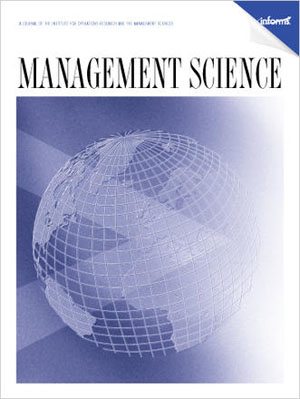
Impact of Physician Payment Scheme on Diagnostic Effort and Testing
Tinglong Dai, Elodie Adida
Abstract
Diagnostic errors are common and can result in serious patient harm. Making the right diagnosis often requires significant diagnostic effort. Yet most physician payment schemes are procedure-based and do not account for diagnostic effort or accuracy due to observability issues. In this paper, we develop a parsimonious model to examine the impact of a physician payment scheme on a physician’s decisions to (1) exert diagnostic effort and (2) perform a confirmatory test. High effort provides an informative (though imperfect) signal of the patient’s true state; the test is confirmatory in that it is a prerequisite for diagnosing a severe condition. Our model uses a two-step diagnostic process to capture the interaction between the physician’s diagnostic effort and testing decisions. We show that under a fee-for-service payment scheme, the physician may view the diagnostic effort and the confirmatory test as either complementary or substitutive, depending on the additional revenue from testing. We also reveal non-monotonic properties such that a more patient-centered physician may not exert more effort or provide a more accurate diagnosis. In addition, either a flat or differentiated payment scheme may be optimal. We also show that an alternative payment scheme, under which the revenue from the confirmatory test is contingent on its result, can induce the social optimum under certain conditions. With the advent of artificial intelligence (AI) as part of the standard of care and its increasing use as a confirmatory test, our research has implications for the design of physician payment systems in light of concerns about the potential erosion of individual attention.
Citation
Goodman, Elodie and Dai, Tinglong, Impact of Physician Payment Scheme on Diagnostic Effort and Testing (April 17, 2023). Management Science, Forthcoming, Available at SSRN: https://ssrn.com/abstract=3702557 or http://dx.doi.org/10.2139/ssrn.3702557
